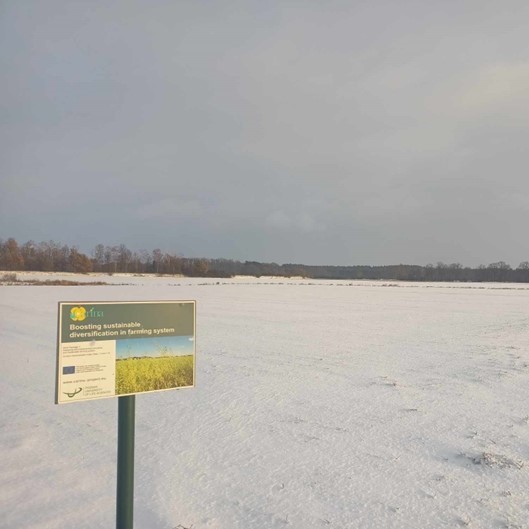We are delighted to extend an invitation to the Camelina Workshop, on February 1, 2024, in Thessaloniki, Greece. This workshop holds significant importance as part of Agrotica 2024, Greece’s largest agricultural exhibition.
The workshop provides a unique opportunity to share valuable insights, discoveries, and innovations in the cultivation and applications of camelina and also a comprehensive exploration of the latest breakthroughs in camelina research and sustainable farming practices.
CARNIA’s project partner CRES will have a dedicated stand at Agrotica 2024, running from February 1 to 4, 2024. At this stand, CRES will highlight the ongoing research in camelina from both the 4CE-MED and CARINA projects. Everyone is invited to visit this stand, grab informative leaflets, and engage in enlightening discussions about the future of sustainable agriculture.
This event promises to be an enriching experience for all stakeholders in the agricultural sector. Join us at the Camelina Workshop and Agrotica 2024 to be part of an insightful journey into the world of sustainable farming practices.
Poznan University of Life Sciences – Winter Update: Braving the Cold in Poland with the Carina Project
As winter blankets Poland in its icy embrace, the Carina Project team at Poznan Universoty of Life Sciences is facing new challenges and forging ahead with resilience, much like the camelina plants they are nurturing.
Battling Extreme Cold
The recent plunge in temperatures to a frigid -15 degrees Celsius across various locations in Poland has put the Carina Project team on high alert. This extreme cold, coupled with a scant snow cover, has raised concerns about the survival and resilience of camelina, a plant known for its hardiness. The team is closely monitoring the situation, hoping their efforts will enable the camelina to withstand these harsh winter conditions.
Focus on Measurement and Analysis
In the midst of these challenges, the team remains committed to their research objectives. They are currently engaged in meticulous measurements and analysis of plant specimens from the previous season. This work is crucial in understanding the growth patterns and environmental responses of camelina, which could offer insights into how plants adapt to extreme weather conditions.
The Importance of the Carina Project
The Carina Project, a cornerstone of Poznan University of Life Science’s research initiatives, is dedicated to studying the growth and sustainability of camelina. This plant is not only resilient but also has the potential to be a valuable resource in biofuel production and ecological conservation efforts. The data gathered by the team this winter will be instrumental in furthering our understanding of camelina and its role in sustainable agriculture.
Looking Ahead
Despite the current challenges posed by the harsh Polish winter, the Carina Project team is optimistic about the future. Their ongoing work and findings will contribute significantly to the field of agricultural science and environmental sustainability. As the winter progresses, the team remains vigilant, hopeful that their efforts will yield positive results for camelina’s resilience and for future agricultural practices.




